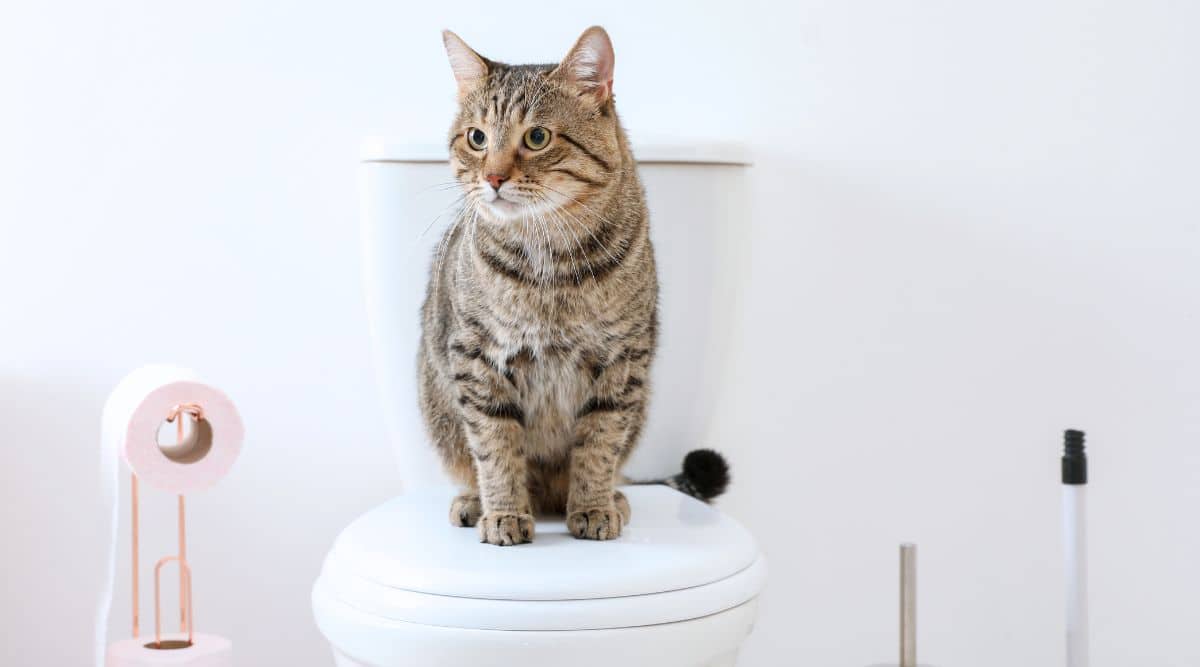Avoid Clogs and Damage: Never Flush Cat Poop Down Your Toilet - Professional Insights
Avoid Clogs and Damage: Never Flush Cat Poop Down Your Toilet - Professional Insights
Blog Article
They are making a number of great pointers on How to Dispose of Cat Poop and Litter Without Plastic Bags overall in this article which follows.

Introduction
As cat owners, it's essential to bear in mind just how we throw away our feline good friends' waste. While it may appear hassle-free to flush pet cat poop down the bathroom, this practice can have destructive repercussions for both the atmosphere and human health.
Ecological Impact
Flushing feline poop introduces dangerous pathogens and bloodsuckers right into the supply of water, posturing a significant danger to marine communities. These pollutants can adversely influence marine life and concession water quality.
Health Risks
Along with environmental worries, flushing cat waste can additionally posture health and wellness threats to people. Pet cat feces may include Toxoplasma gondii, a bloodsucker that can create toxoplasmosis-- a potentially severe illness, especially for expectant ladies and individuals with weakened body immune systems.
Alternatives to Flushing
Thankfully, there are much safer and extra responsible methods to get rid of cat poop. Think about the complying with options:
1. Scoop and Dispose in Trash
The most typical method of throwing away pet cat poop is to scoop it into a naturally degradable bag and throw it in the garbage. Make sure to make use of a specialized litter scoop and dispose of the waste immediately.
2. Usage Biodegradable Litter
Choose eco-friendly pet cat litter made from materials such as corn or wheat. These trashes are eco-friendly and can be securely gotten rid of in the garbage.
3. Hide in the Yard
If you have a backyard, consider burying cat waste in a designated area away from vegetable gardens and water resources. Make certain to dig deep adequate to avoid contamination of groundwater.
4. Mount a Pet Waste Disposal System
Buy a pet garbage disposal system particularly created for cat waste. These systems utilize enzymes to break down the waste, lowering smell and ecological impact.
Final thought
Liable pet dog ownership extends beyond offering food and shelter-- it likewise entails appropriate waste monitoring. By refraining from flushing feline poop down the bathroom and going with alternative disposal approaches, we can decrease our environmental footprint and safeguard human wellness.
Why You Should Never Flush Cat Poop Down the Toilet
A rose by any other name might smell as sweet, but not all poop is created equal. Toilets, and our sewage systems, are designed for human excrement, not animal waste. It might seem like it couldn’t hurt to toss cat feces into the loo, but it’s not a good idea to flush cat poop in the toilet.
First and foremost, assuming your cat uses a litter box, any waste is going to have litter on it. And even the smallest amount of litter can wreak havoc on plumbing.
Over time, small amounts build up, filling up your septic system. Most litter sold today is clumping; it is made from a type of clay that hardens when it gets wet. Ever tried to scrape old clumps from the bottom of a litter box? You know just how cement-hard it can get!
Now imagine just a small clump of that stuck in your pipes. A simple de-clogger like Drano isn’t going to cut it. And that means it’s going to cost you big time to fix it.
Parasitic Contamination
Believe it or not, your healthy kitty may be harboring a nasty parasite. Only cats excrete Toxoplasma in their feces. Yet it rarely causes serious health issues in the cats that are infected. Most people will be fine too if infected. Only pregnant women and people with compromised immune systems are at risk. (If you’ve ever heard how women who are expecting are excused from litter cleaning duty, Toxoplasma is why.)
But other animals may have a problem if infected with the parasite. And human water treatment systems aren’t designed to handle it. As a result, the systems don’t remove the parasite before discharging wastewater into local waterways. Fish, shellfish, and other marine life — otters in particular — are susceptible to toxoplasma. If exposed, most will end up with brain damage and many will die.
Depending on the species of fish, they may end up on someone’s fish hook and, ultimately on someone’s dinner plate. If that someone has a chronic illness, they’re at risk.
Skip the Toilet Training
We know there are folks out there who like to toilet train their cats. And we give them props, it takes a lot of work. But thanks to the toxoplasma, it’s not a good idea.

I recently found that blog entry about Can You Flush Cat Poop Down The Toilet? while browsing the search engines. Loved our write-up? Please share it. Help another person discover it. Thank you so much for going through it.
Click Here Report this page